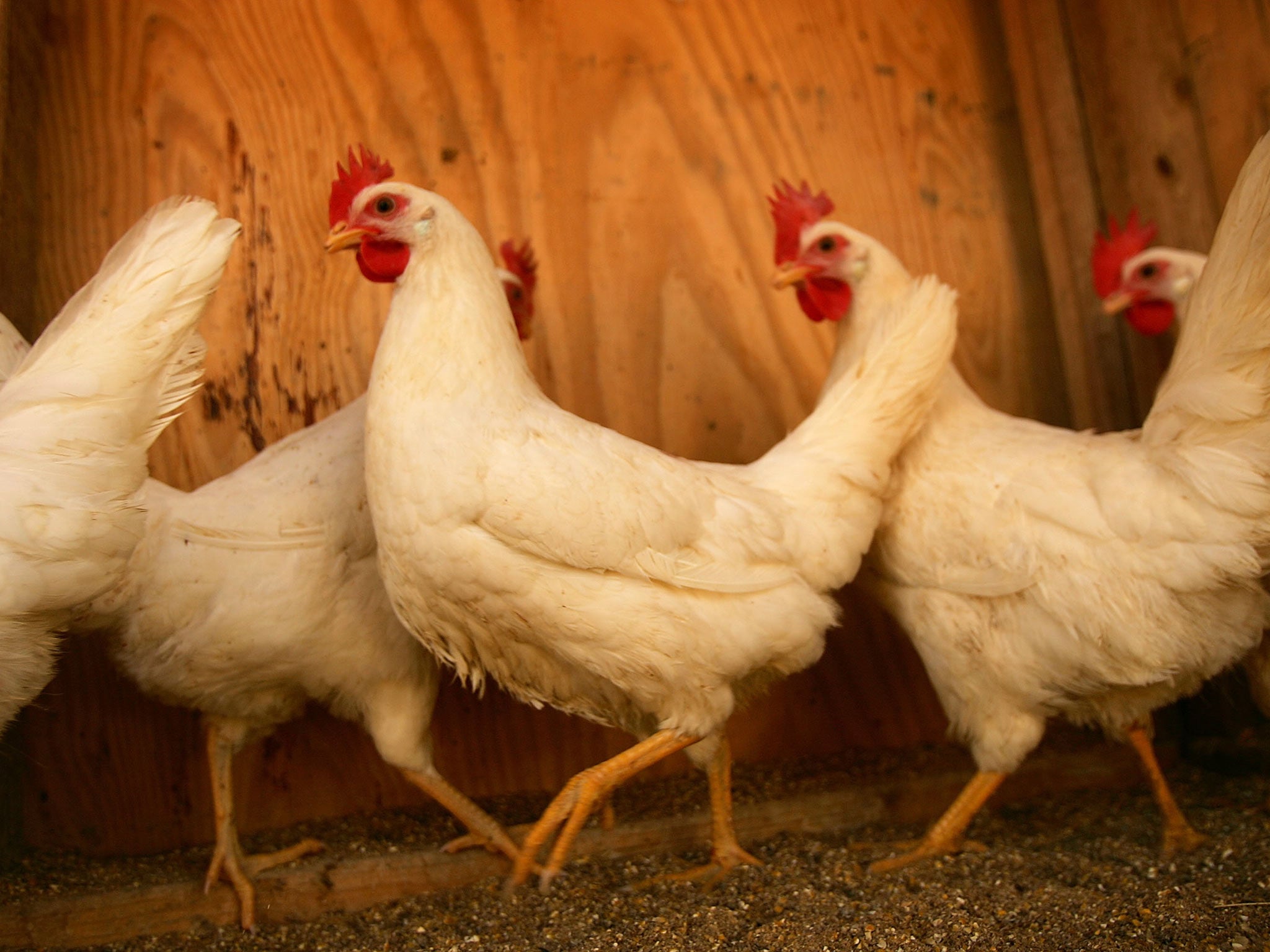How to avoid getting malaria – sleep with a chicken
Chicken, which eat mosquitoes, have several compounds in their feathers that mosquitoes find off-putting

Your support helps us to tell the story
This election is still a dead heat, according to most polls. In a fight with such wafer-thin margins, we need reporters on the ground talking to the people Trump and Harris are courting. Your support allows us to keep sending journalists to the story.
The Independent is trusted by 27 million Americans from across the entire political spectrum every month. Unlike many other quality news outlets, we choose not to lock you out of our reporting and analysis with paywalls. But quality journalism must still be paid for.
Help us keep bring these critical stories to light. Your support makes all the difference.
Scientists have come up with a surprising way to avoid getting malaria – sleeping with a chicken next to the bed.
A study in Ethiopia found that while mosquitoes have a taste for human blood, they are repelled by the smell of chickens, according to a paper in the Malaria Journal.
Testing the blood in mosquitoes that had recently fed, researchers from Sweden and Ethiopia, found just one out of nearly 1,200 had bitten a chicken with people and cattle seeming to bear the brunt of the insects’ attentions.
Malaria is spread mainly by mosquitoes which drink the blood of an infected individual, then bite someone else.
One of the researchers, Professor Rickard Ignell, of Swedish University of Agricultural Sciences, said: “We were surprised to find that malaria mosquitoes are repelled by the odours emitted by chickens.
“This study shows for the first time that malaria mosquitoes actively avoid feeding on certain animal species, and that this behaviour is regulated through odour cues.”
The researchers, including academics from Addis Ababa University, took blood samples from mosquitoes that had just fed indoors and outdoors.
Cattle were the most fed upon animal outdoors with 63 per cent of mosquitoes being found to have eaten their blood. Twenty per cent had sucked human blood with five per cent feeding on goats and 2.6 per cent on sheep. The researchers found just one mosquito with chicken blood.
In this area of Ethiopia, animals are brought inside at times. In this setting, the mosquitoes appeared to prefer the blood of humans who made up 69 per cent of meals, compared to cattle on 18 per cent, goats on 3.3 per cent and sheep on two per cent. No indoor chickens were bitten.
There were about 6,700 humans, 10,000 cattle, 3,200 chickens, 850 goats and 480 sheep who were “available” to the mosquitoes.
The researchers identified four “chicken-specific compounds” – isobutyl butyrate, naphthalene, hexadecane and trans-limonene – found in their feathers that appeared to have a repellent effect.
They also said the chicken feathers posed a physical barrier to mosquitoes and noted the birds “will actively feed on mosquitoes”.
Mosquito traps were set up in 11 homes for 11 days with a volunteer agreeing to sleep under an untreated bed net nearby.
Significantly fewer mosquitoes were caught in traps baited with the chicken compounds than in the control traps and putting a live chicken in a cage next to a trap had a similar repellent effect.
Professor Ignell said: “People in sub-Saharan Africa have suffered considerably under the burden of malaria over an extended period of time and mosquitoes are becoming increasingly physiologically resistant to pesticides, while also changing their feeding habits for example by moving from indoors to outdoors.
“For this reason there is a need to develop novel control methods. In our study, we have been able to identify a number of natural odour compounds which could repel host-seeking malaria mosquitoes and prevent them from getting in contact with people.”
Subscribe to Independent Premium to bookmark this article
Want to bookmark your favourite articles and stories to read or reference later? Start your Independent Premium subscription today.
Join our commenting forum
Join thought-provoking conversations, follow other Independent readers and see their replies
Comments